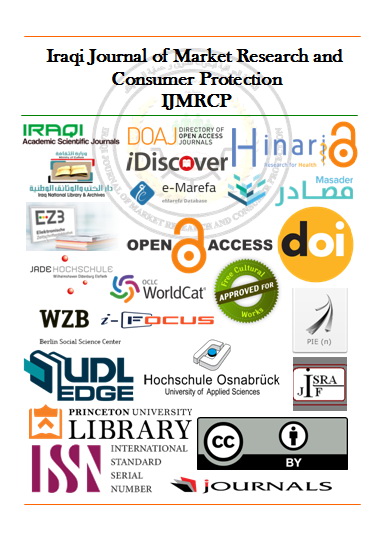DETERMINATION OF OPTIMUM CONDITIONS FOR BIOREMEDIATION OF IMIDACLOPRID BY RHIZOBIUM PUSENSE STRAIN IHB 1(OP218458.1) AND PSYCHROBACTER CELER STRAIN IHB2(OP672320.1)
DETERMINATION OF OPTIMUM CONDITIONS FOR BIOREMEDIATION OF IMIDACLOPRID BY RHIZOBIUM PUSENSE STRAIN IHB 1(OP218458.1) AND PSYCHROBACTER CELER STRAIN IHB2(OP672320.1)
Keywords:
MSM, Psychrobacter, Rhizobium, HPLC.Abstract
Imidacloprid (1-[(6-chloro-3-pyridinyl) methyl]-N-nitro-2-imidazolidinimine), is a recent systemic and contact insecticide with high activity against a wide range of pests. Continuous dispersion of this pesticide in the environment and its stability in soil results in environmental pollution which demands remediation. Used in this research Rhizobium pusense strain IHB 1 (OP218458.1) and Psychrobacter celer strain IHB2(OP672320.1). which were previously isolated from botanical fields soil of greenhouses which has been using imidacloprid pesticides for many years to determine optimum condition and degradation ability for imidacloprid by tested in minimal salt medium (MSM) for a duration of 21 days. The temperature, pH number, and concentration of the pesticide were determined for the growth of bacteria. The best growth of Psychrobacter celer strain IHB2(OP672320.1) was at 28°C, pH 6, and pesticide concentration 50ppm, while Rhizobium pusense strain IHB1 (OP218458.1) had the best growth at 24°C, pH 7, and pesticide concentration 75ppm.Levels of imidacloprid in MSM medium were analyzed by high-performance liquid chromatography (HPLC). Rhizobium pusense strain IHB 1 (OP218458.1) was able to degrade 50.2% and Psychrobacter celer strain IHB2(OP672320.1) was able to degrade 59.01% of the initial amount of imidacloprid at the concentration of 25 mg /L in MSM media. All bacteria introduced in this study were among the first reports of imidacloprid degrading isolates in MSM-limited media from greenhouse soil. Therefore, the results of this study demonstrate the effectiveness of using soil bacteria for microbial degradation of imidacloprid. These findings suggest that these strains may be promising candidates for bioremediation of imidacloprid-contaminated soils.
Published
Issue
Section
License
Copyright (c) 2025 Iraqi Journal of Market Research and Consumer Protection

This work is licensed under a Creative Commons Attribution 4.0 International License.





